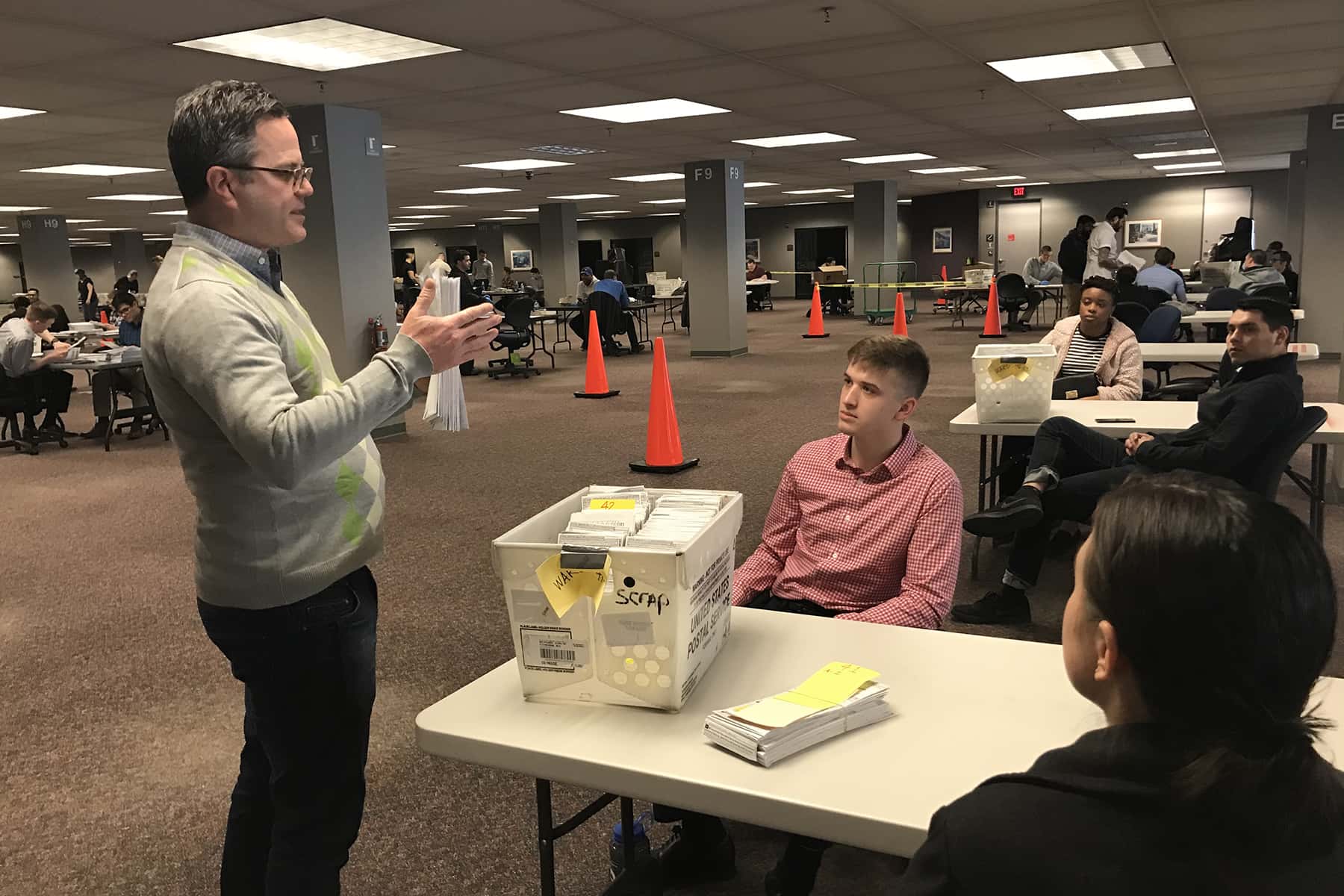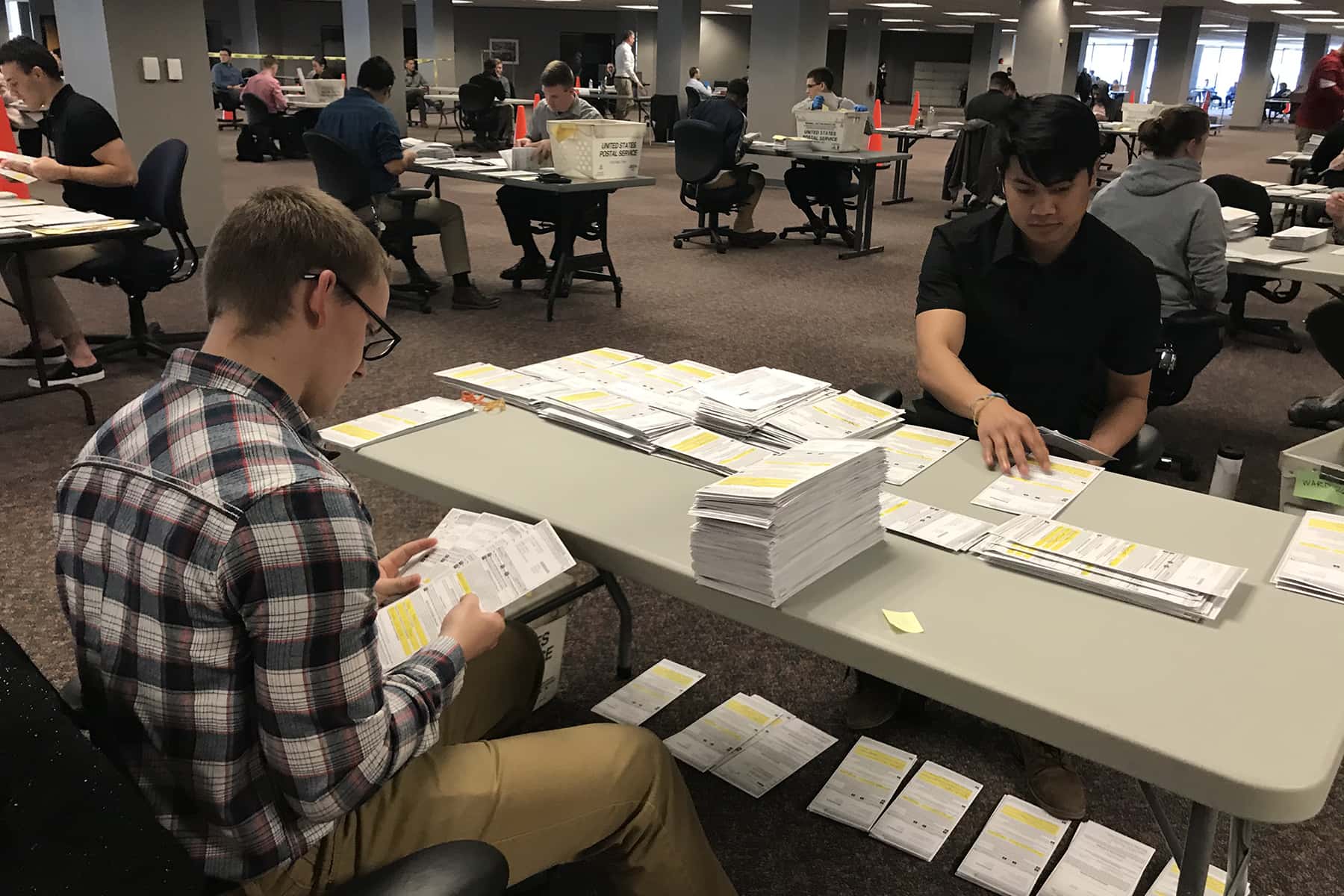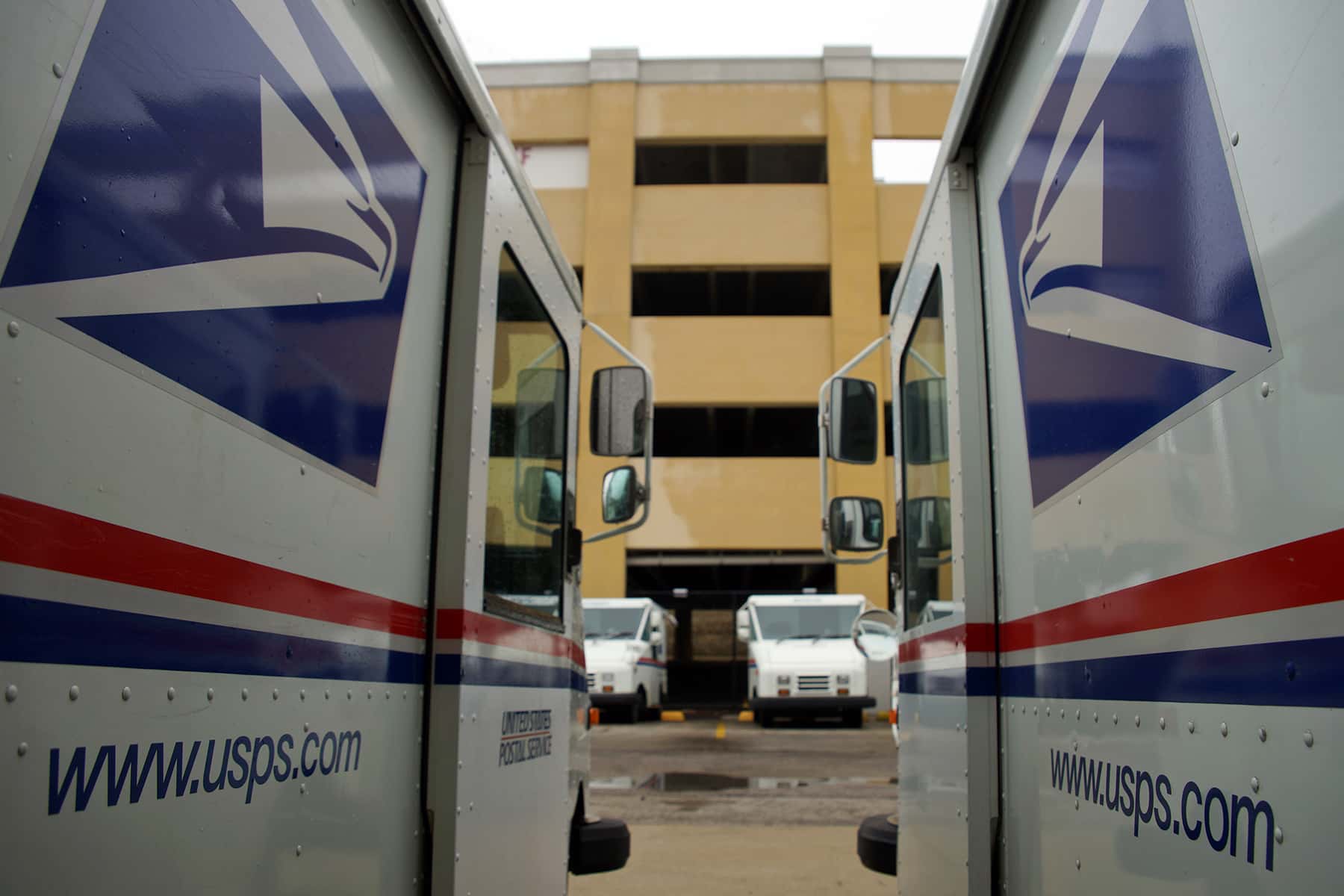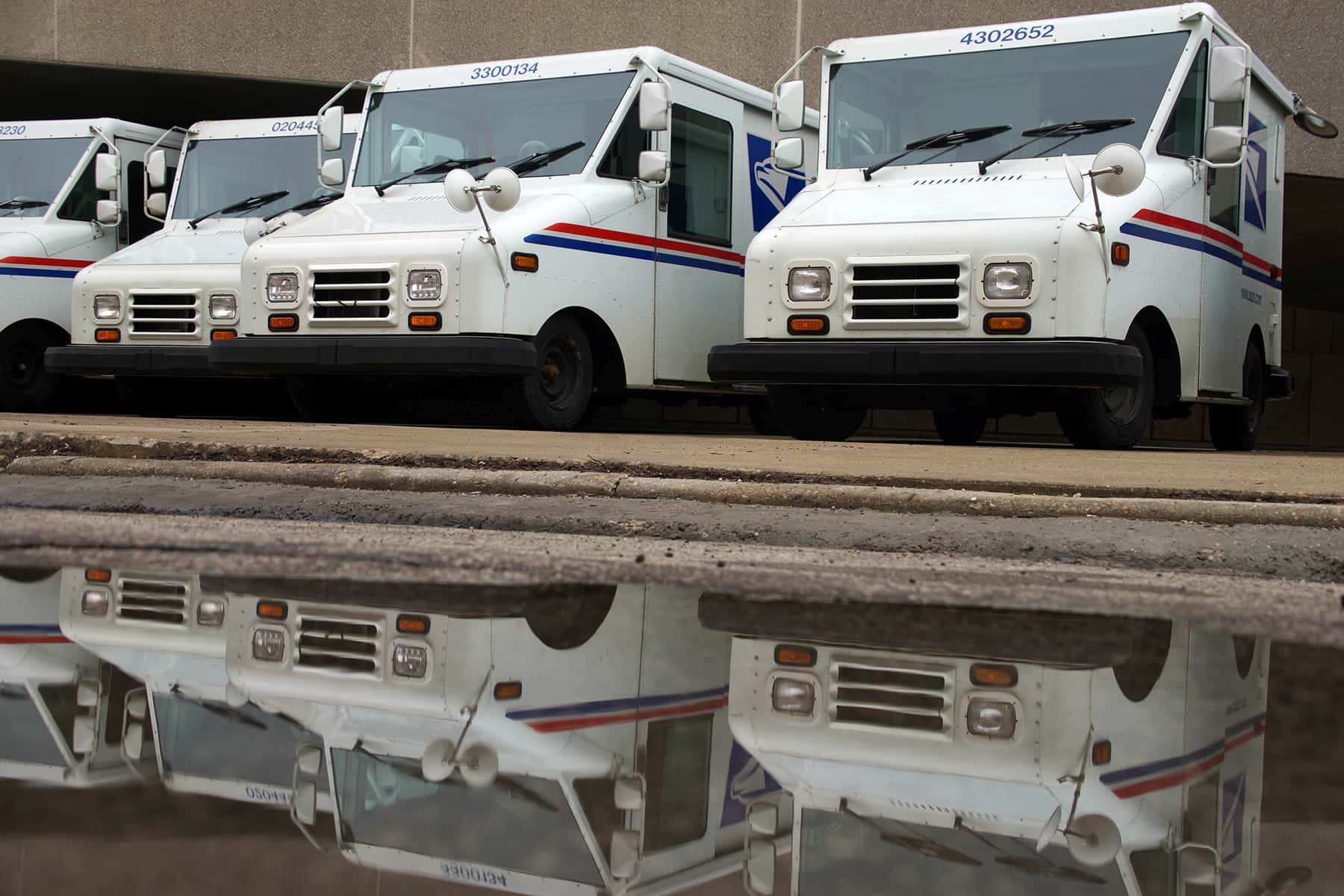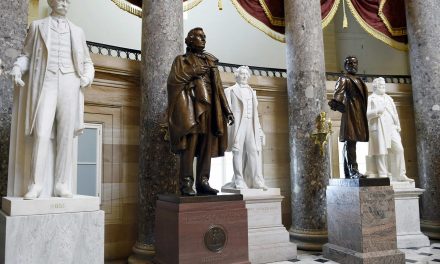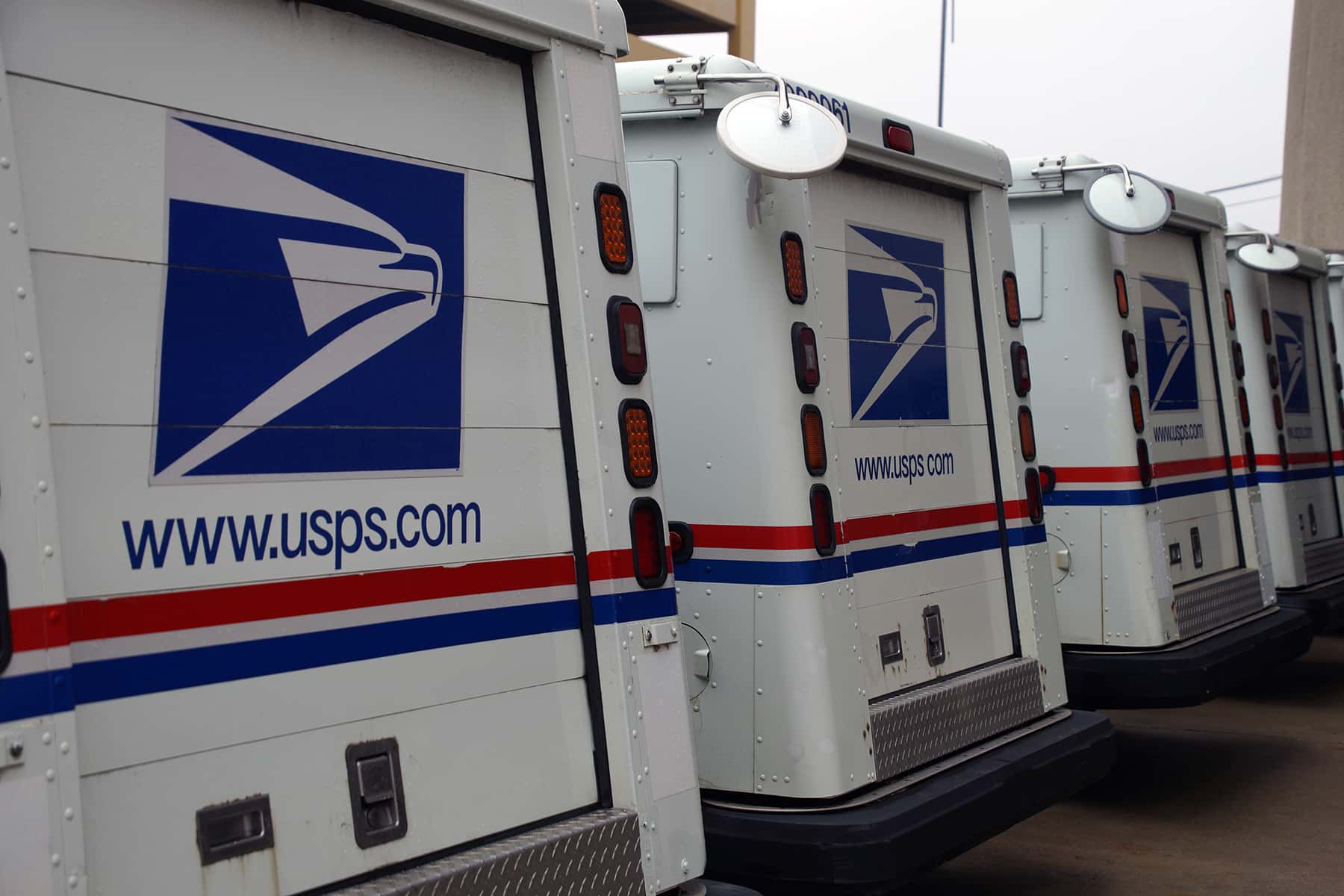
As the novel coronavirus pandemic makes in-person voting inherently dangerous in the United States, as demonstrated by the disastrous contests in Wisconsin earlier this month, rights groups and experts are advocating a nationwide vote-by-mail system as the only safe and fair way to conduct the nation’s hugely consequential November elections.
But President Donald Trump, who is up for re-election, appears hell-bent on killing the beloved government institution that would be essential to implementing universal mail-in voting: the U.S. Postal Service.
Trump has been an outspoken opponent of mail-in voting for everyone but himself, explicitly threatened to veto the multi-trillion-dollar CARES Act last month if it contained relief for the Postal Service, an independent executive branch agency that would play a central role in ensuring people receive their ballots under a nationwide vote-by-mail system.
The version of the CARES Act Trump signed into law on March 27 ultimately contained a $10 billion loan for USPS, but the funds have yet to be approved by the Treasury Department and fall far short of what the agency says it needs to survive the coronavirus crisis. In addition to feeling the impact of a sharp decline in mail volume, the Postal Service also remains shackled by a 2006 congressional mandate requiring the USPS to pre-fund its retirees’ health benefits through 2056, a law that analysts say is at the root of the agency’s financial troubles.
Richard Hasen, a professor University of California–Irvine School of Law, argued that Trump’s refusal to provide necessary relief for the Postal Service should be viewed as “an attack on voting rights.”
“All the plans we have for a safe and legitimate general election in November depend heavily upon the ability to expand vote-by-mail,” wrote Hasen. “Yet those plans would be completely upended if the United States Postal Service collapses. A shutdown of USPS would be catastrophic for democracy. Even though many states with vote-by-mail allow ballots to be dropped at polling places, vote centers, or in special state boxes for the return of envelopes, those ballots get to voters via the U.S. mail. Voters also get other election materials, including in many states the form that is used to request a vote-by-mail ballot in the first place.”
In a virtual briefing earlier this month, Postmaster General Megan Brennan warned the House Oversight and Reform Committee that USPS will “run out of cash” by the end of September if Congress does not provide immediate relief. Brennan called for “access to $75 billion through a combination of cash, grants, and loans to avoid a liquidity crisis.”
Trump has publicly dismissed the Postal Service’s calls for help, suggesting in a falsehood-filled rant last week that the agency should simply “raise prices.” Mark Dimondstein, president of the American Postal Workers Union, told Yahoo News over the weekend that he believes Trump administration officials are actively exploiting the coronavirus crisis “to push their privatization agenda,” a warning Senator Bernie Sanders echoed.
“We cannot allow Donald Trump to use this horrific pandemic as an opportunity to bankrupt and privatize the Postal Service,” tweeted Sanders. “Now, more than ever, we need a strong and vibrant postal system to deliver mail 6-days a week. Congress must act now to save it.”
As of this writing, more than 212,000 people have signed a MoveOn.org petition urging Congress to “fully fund the United States Postal Service in the next stimulus bill.”
“Private companies won’t deliver to certain remote areas because it’s not profitable to do so,” the petition states, “but the Postal Service is obligated to serve all Americans regardless of where they live—and, right now, the Postal Service is delivering lifesaving medications and food, supporting voting by mail in primary states, and helping other services necessary for our nation to continue to operate.”
A robust and properly-funded USPS, coupled with a nationwide push for mail-in ballots could ensure that citizens don’t have to choose between the right to vote and the desire to avoid infection in November. Oregon, Colorado, Hawaii, Utah, and Washington already conduct elections entirely by mail, and advocacy groups are urging Congress and state officials to act quickly to ensure that everyone in the U.S. has the option to mail in their ballots come November. Congress has the constitutional authority to pass a law requiring each state to offer a mail-in voting option.
Matthew Harwood, managing director of communications and strategy at the Brennan Center for Justice, wrote in a blog post last week that vote-by-mail is “an essential way for voters to stay safe while exercising their right to choose who governs them.”
“To ignore, and even block, a solution that maintains our electoral system would be democratic malpractice,” wrote Harwood. “To make sure that vote by mail and other critical capacity-building can be implemented in time for November, we have to start putting new processes in place now.”
In a letter to congressional leaders, a coalition of nearly 50 progressive organizations demanded that the expected fourth coronavirus stimulus package include at least $4 billion to help states expand vote-by-mail, early voting, and online voter registration to “ensure that every American can exercise their right to vote this November.”
“We are running out of time,” tweeted Stand Up America, one of the letter’s signatories. “We need the funding for nationwide vote-by-mail, early voting, and online voter registration. Without it, many people will simply not be able to vote this November.”
Jake Johnson
Lee Matz and Wisconsin National Guard

